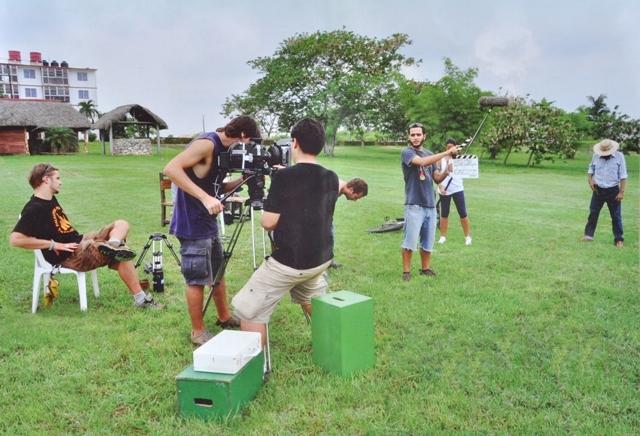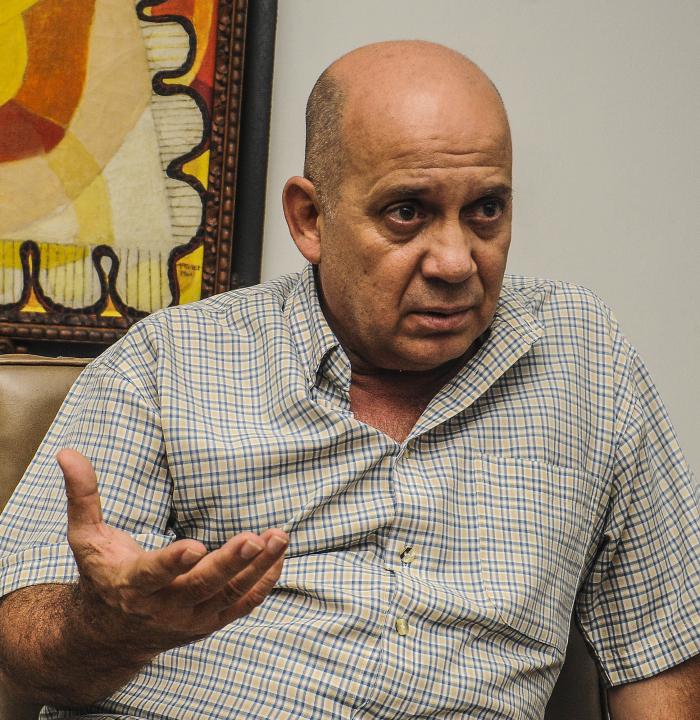
Decree-Law No. 373 "On the Independent Audiovisual and Cinematographic Creator" was approved by the Council of State on March 25, 2019 and has now been recorded in the Official Gazette of the Republic of Cuba.
Policies to promote audiovisual and cinematographic creation are the result of a long process of discussion among artists, the Cuban Institute of Cinematographic Art and Industry (ICAIC), the Ministry of Culture, and numerous specialists from other bodies. To explain details of the final product,GranmaInternational talked with ICAIC president Ramón Samada Suárez, who addressed the law’s antecedents.
“The progressive transformation of analogue to digital cinema opened new possibilities for film creation. In our country, this process took place from the 80s through the beginning of this century, when audiovisual and cinematographic production was consolidated digitally. This process generalized and diversified ways of making films with the participation of many creators in an independent fashion.”
- When were independent audiovisual creators first discussed concretely?
During the Seventh UNEAC Congress (Union of Cuban Writers and Artists) the need to recognize the independent audiovisual and cinematographic creator was analyzed, and in 2013, a work group was created to propose changes - to the Policy Guidelines Implementation Commission - needed to increase cinematographic production. These proposals, that also implied institutional transformations, addressed the needs expressed by creators, in all their magnitude, in the field of creation and production of projects in an independent manner. With greater emphasis, the need to protect, support, and legally regulate these needs was addressed, recalling that visual artists and literary creators had been recognized as independent creators years ago.
- What was the next step?
After a long process of discussion, not exempt from disagreement, and with significant participation from creators, proposals were drafted that were quite novel in Cuban film, addressing the current reality of film in the country from a strong legal point of view.
- Then the decree-law was approved…
Several policies were approved, in which ICAIC was confirmed as the guiding institution of Cuban film, an idea supported by filmmakers, while, at the same time, the labor status of independent audiovisual and cinematographic creators was formalized with the establishment of a Registry of creators, in which they are legally recognized.

As is known, audiovisual and cinematographic production is done in a collective manner, and in this sense, the decree also recognizes independent producers through the legal figure of audiovisual and cinematographic Creation Collectives. Within these two figures, a broad range of authorities for the development of their work are concentrated, including the ability to hire and be hired; to operate bank accounts; and have relations with other individuals and incorporated entities, both Cuban and foreign.
- What is the Promotion Fund?
The Decree Law generates other legal regulations that legalize, complement, and create new mechanisms for the development of film production, for example, the creation of the Fund for the promotion of Cuban cinema, an institution that through ICAIC, and with primary income from the State budget, will financially support the best projects presented by creators and film producers, identified via contests. It is important to highlight the support of the Cuban state and government to guarantee this financial backing, while including the possibility for any individual or incorporated entity, Cuban or foreign, to participate with contributions to this Fund.- The Film Commission was also created. What is its function?This commission was created to facilitate domestic and foreign film production, and promote Cuba as a film destination, as a way to generate income and to increase jobs in the film sector, and to complete film production facilities and create offices within the ICAIC and ICRT (Cuban Institute of Radio and Television) to serve these creators. In addition, three new categories of self-employment were approved: Operator/lessor of equipment for artistic productions; Casting agent; and Artistic production assistant.- What will the implementation of the Decree Law mean?Concretizing it legitimizes the Revolution’s long-standing support for the development of Cuban film and enriches the concepts set out in the law that founded ICAIC back on March 24, 1959, recognizing that cinema is an art that is strongly committed to its creators and to the public. The law constitutes a cultural strength.
SPECIFICATIONS
- Decree Law 373 of the Independent Audiovisual and Cinematographic Creator has now been published in the Official Gazette of the Republic of Cuba.- Ministry of Culture resolutions regulate the functioning and Registry of independent audiovisual and cinematographic creators. These resolutions regulate the approval of Collectives of audiovisual and cinematographic creation; establish procedures for the Fund for the Promotion of Cuban Cinema; the Film Commission and the Office of attention to production are reseponible for procedures for the three new categories of self-employment. In addition, they establish ICAIC’s authorities as the guiding body for audiovisual and cinematographic activity.- The three new categories of self-employment are: Operator/lessor of equipment for artistic productions; Casting agent; and Artistic production assistant.- The Decree-Law enters into effect 60 business days following its publication.- The Central Bank of Cuba issued a complementary rule for Decree-Law 373, Resolution 79-2019, which reflects the approved policy for this sector and the banking and financial system’s improvement policies. The purpose of the resolution is to provide procedures for bank accounts by independent audiovisual and cinematographic creators and creation collectives. In the case of the former, the rule indicates that they will be subject to the same procedures established in Resolution 100 of 2011, which regulates the opening of accounts by self-employed individuals, and creation collectives may likewise open bank accounts in CUP or CUC, at the request of ICRT or ICAIC.
- The Ministry of Culture will serve as the guiding body for self-employed workers in the three new categories.
- These three new categories of self-employed workers will make tax contributions in accordance with the Ministry of Finances and Prices Resolution 194- 2018, until a new resolution enters into effect, which will contain adjustments to rates. Stipulations indicate how these new figures will pay personal income taxes, given that it has been decided that they will be incorporated within the general regimen. As a monthly quota, operator/lessors of equipment for artistic productions will contribute 10% of income earned, as will casting agents, while artistic production assistants pay 5%. At the end of the year, when sworn declarations of income are due, 30% of gross income may be deducted as expenses in the case of the first two categories, and 10% for artistic production assistants.















